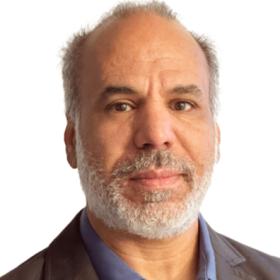Dr. Zaghloul Ahmed, the chair and program director of the Physical Therapy Department and a Neuroscience and Motor Control Professor at the College of Staten Island/CUNY, is a leading figure in the field of bioelectronic medicine, a field with immense practical implications. His research is dedicated to the innovative application of therapeutic strategies based on electrical and magnetic stimulation. He investigates the modulatory effects of various forms of electromagnetic stimulation on the brain, spinal cord, and peripheral organs. His overarching goal is to understand the short- and long-term physiological and therapeutic effects of these interventions and to uncover their mechanisms of action. To achieve this, he conducts studies across a wide range of model systems, from single cells to animal models to humans. His current areas of application are spinal cord injury, stroke, and neurodegenerative diseases such as amyotrophic lateral sclerosis (ALS). The latest focus of the Ahmed lab is on the effects of multi-site direct current stimulation on disease progression in ALS mouse models, a development that offers a glimmer of hope for improved treatments and outcomes for ALS.
Degrees
PhD., Biology/subprogram neuroscience, Graduate Center/CUNY
MSc., Biology/subprogram neuroscience, Graduate Center/CUNY
BSc., Physical Therapy, Cairo University, Egypt
Selected original articles
- Wagdy Mekhael, Sultana Begum, Sreyashi Samaddar, Mazen Hassan, Pedro Toruno, Malik Ahmed, Alexis Gorin, Michael Maisano, Mark Ayad, Zaghloul Ahmed. Repeated anodal trans-spinal direct current stimulation results in long-1 term reduction of spasticity in mice with spinal cord injury. Journal of Physiology, 2019 https://doi.org/10.1113/JP276952
- Tiffany M. Richards, MS1; Pawan Sharma, MS2; Aaron Kuang, BS2; Douglas Whitty, BS2; Zaghloul Ahmed, PhD; Prithvi K. Shah, PhD. Novel speed-controlled automated ladder walking device reveals walking speed as a critical determinant of skilled locomotion after a spinal cord injury in adult rats. Journal of Neurotrauma, 2019
- Ahmed Z. Effects of cathodal trans-spinal direct current stimulation on lower urinary tract function in normal and spinal cord injury mice with overactive bladder. Journal of Neural Engineering 14: 056002, 2017.
- Samaddar S, Vazquez K, Ponkia D, Toruno P, Sahbani K, Begum S, Abouelela A, Mekhael W, and Ahmed Z. Transspinal direct current stimulation modulates migration and proliferation of adult newly born spinal cells in mice. Journal of Applied Physiology 122: 339-353, 2017.
- Ahmed Z. Trans-spinal direct current stimulation alters muscle tone in mice with and without spinal cord injury with spasticity. Journal of Neuroscience 34: 1701-1709, 2014.
- Ahmed Z. Effects of cathodal trans-spinal direct current stimulation on mouse spinal network and complex multijoint movements. Journal of Neuroscience 33: 14949-14957, 2013.
- Ahmed Z. Electrophysiological characterization of spino-sciatic and cortico-sciatic associative plasticity: modulation by trans-spinal direct current and effects on recovery after spinal cord injury in mice. Journal of Neuroscience 33: 4935-4946, 2013.
- Ahmed Z, and Wieraszko A. Combined effects of acrobatic exercise and magnetic stimulation on the functional recovery after spinal cord lesions. Journal of Neurotrauma 25: 1257-1269, 2008.
- Ahmed Z, and Wieraszko A. The mechanism of magnetic field-induced increase of excitability in hippocampal neurons. Brain Research 1221: 30-40, 2008.
For the entire list of publication please visit this link: https://scholar.google.com/citations?user=kDaIYAgAAAAJ&hl=en
